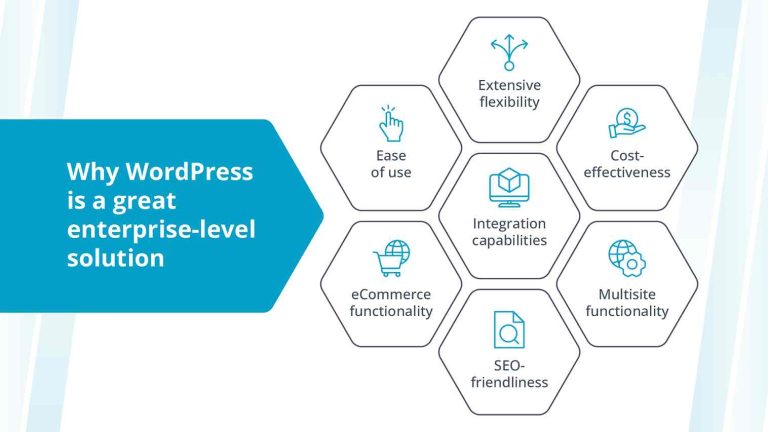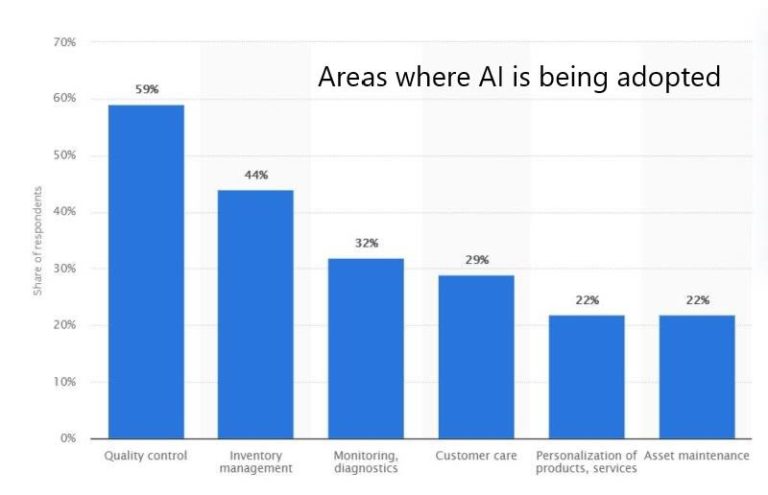What Is an SEO Monitoring Tool?
An SEO monitoring tool tracks how your website performs in search engines. It shows data like which keywords your site ranks for, monitors who’s linking to your site, how much traffic you’re getting, and if there are any technical issues like broken links or slow pages.
These SEO services make it easier to understand what’s going well and what needs improvement. They also help you keep an eye on competitors and track changes over time, so you can make informed decisions to improve your site’s visibility in search results.
What to Look for in an SEO Monitoring Tool for Your Website:
- SEO functionality
- Extensive reporting tools
- Ease of use
- Integrations
- Value for money
A. SEO Functionality
A good monitoring tool should offer essential SEO features like keyword tracking, backlink monitoring, and site audits.
It should show you how your pages are ranking on SERP, alert you about any technical issues like broken links or slow load times, and help you keep track of who’s linking to your site.
If it also gives you a peek at your competitors’ SEO performance, that’s a big bonus.
B. Extensive Reporting Tools
You’ll want reports that are not just detailed, but easy to understand. The tool should let you customize what data you see, compare performance over time, and schedule reports to be sent automatically. For instance, if you’re running an ecommerce site that’s all about driving sales, you’ll want to closely track organic conversion rates and revenue from organic search.
If you’re sharing reports with a team or clients, make sure exporting and formatting are simple and professional-looking.
C. Ease of Use
Even an all-in-one tool isn’t helpful if it’s too complicated to figure out. Look for a clean dashboard, clear menus, and features that are easy to find and use.
Whether you’re a beginner or just want to save time, the tool should feel easy from day one.
D. Integrations
It’s a big plus if your SEO tool connects with the other tools you’re already using, like Google Analytics, Google Search Console, or your CMS. Integrations make your workflow smoother and allow you to pull all your data into one place without extra effort.
E. Value for Money
Finally, make sure the tool fits your needs and your budget. Some platforms offer a generous free plan or trial, while others charge more for advanced features.
Think about how many websites, users, or keywords you need to track and choose a plan that gives you the best return on your investment.
Best SEO Tools to Monitor Your Website’s Performance:
- XOVI
- SurferSEO
- SemRush
- Google Search Console
- Ahrefs
- Buzzsumo
- SEOptimer
- SERanking
- seoClarity
- seoQuake
1. XOVI
XOVI is an all-in-one SEO platform that helps you research keywords, audit your website, track your ranking performance, and stay ahead of competitors.
Whether you’re running a small local business or managing multiple client websites, XOVI gives you clear, step-by-step guidance to make your SEO efforts more effective.
Plus, it’s simple enough for beginners, but powerful enough for SEO agencies and pros who need more than essential metrics.

Source
Features:
- Keyword research & monitoring: Discover high-performing keywords and track how your site ranks for them over time.
- On-page SEO audits: Get detailed recommendations for improving your site structure, content, and technical performance.
- Competitor analysis: See how your site stacks up against the competition and uncover gaps or opportunities in your niche.
- Custom reports & dashboards: Create white-label reports and automate delivery to clients or team members.
- Local search engine optimization tools: You can optimize for specific regions or cities, making it ideal for businesses targeting local customers.
- Content optimization: Analyze and improve your landing page content based on keyword targeting and readability.
- Backlink monitoring: Track your backlink profile and identify which links are helping (or hurting) your SEO rankings.
- SERP snippet previews: Preview how your titles and descriptions appear in search results across different devices.
- AI content writer: Use the built-in AI assistant to help with SEO-optimized content writing directly within the platform.
Pros:
- Detailed site audits
- Helpful content suggestions and optimization tools
- Works well for agencies managing multiple sites
- Over 196 countries monitored
- Generous plans with unlimited projects
Cons:
- The interface could look more modern
Pricing:
Paid plans start at €99.00/ month.
2. SurferSEO
Surfer SEO is a content optimization tool that helps you create content that actually ranks on Google. It looks at what’s already working for your target keywords and gives you clear, practical tips to improve your pages.
Whether you’re writing something new or updating old posts, Surfer makes on-page SEO easier to manage and measure. You’ll get helpful features like content scores, keyword ideas, and audits, all in a simple, easy-to-use dashboard.

Source
Features:
- Content editor: Get real-time feedback on word count, structure, and keywords while you write, based on what’s working for top-ranking pages.
- Keyword research: Discover content ideas, assess keyword difficulty, and explore search intent and volume.
- SERP analyzer: Deep-dive into your competitors’ content to understand what makes them rank, and how you can improve.
- Content audit: Analyze existing content and get suggestions to improve rankings by fixing keyword usage, structure, and missing backlinks.
- Grow Flow: An AI-powered assistant that gives weekly SEO suggestions to help you steadily improve your site’s performance.
- Keyword Surfer (Chrome extension): See search volume, CPC, and content word count right from your Google search results.
- AI outline generator: Quickly build article outlines and headings based on solid data from SERP.
- AI writer: Generate ready-to-publish blog posts with Surfer’s AI content generator (add-on).
- Google Docs & WordPress integration: Optimize content where you work, with real-time SEO suggestions directly in your editor.
- SEMrush integration: Bring in backlink and keyword data from SEMrush for deeper analysis.
Pros:
- Excellent content editor that’s easy to use and highly customizable
- Helpful Chrome extension (Keyword Surfer) that’s free to use
- Weekly tasks from the Grow Flow feature can guide your SEO strategy
- Strong customer support with helpful tutorials and a responsive team
Cons:
- Pricing is high, especially for small teams or casual users
- The keyword research tool is limited compared to standalone SEO tools
- AI writer is a paid add-on and can get expensive quickly
Pricing:
Paid plans start at $99/month.
3. SemRush
Semrush is a digital marketing tool that covers SEO, PPC, content marketing, and competitor research. It’s packed with data and features, making it a favorite among marketers and SEO pros who want a deep look into their site’s performance.
While it can feel a bit overwhelming at first, it offers powerful SEO insights and automation that are totally worth it. From keyword research to site audits and competitor tracking, it’s all right there in one platform.

Source
Features:
- Domain overview & traffic analytics: Understand any site’s organic and paid traffic, traffic sources, and audience insights.
- Keyword Magic Tool: Discover high-potential keywords with filters for intent, difficulty, and volume.
- Backlink analytics: Analyze your backlink profile and that of competitors, with metrics like anchor texts and referring domains.
- Site audit: Identify and fix technical SEO issues to improve site health and ranking.
- Position tracking: Monitor keyword rankings daily and spot visibility changes or keyword cannibalization.
- Content marketing toolkit: Create SEO-optimized content, generate ideas, and analyze top-performing articles.
- Advertising research: Track competitors’ PPC ads, keywords, and estimated spending.
- Market explorer: Get insights into your niche, audience interests, and fast-growing competitors.
- SEO content template: Get content guidelines based on what top-ranking competitors are doing.
- Link building tool: Find outreach prospects and manage every SEO campaign directly in the platform.
Pros:
- Constant feature updates and additions
- Great integrations (e.g., Google tools, WordPress, Google Docs, Semrush SEO Assistant)
- Solid competitor research tools, from keywords to backlinks to ads
Cons:
- Steep learning curve for new users
- Can be overwhelming due to the number of features
- Some keyword and traffic data may be inaccurate
Pricing:
Paid plans start at $139.95/month.
4. Google Search Console
Google Search Console is a free platform created by Google to help website owners, SEO professionals, and small business owners monitor, maintain, and optimize their site’s performance in Google Search.
It provides data-driven insights into how your site appears in search results, tracks organic traffic, and highlights technical issues that could be holding your site back. While it doesn’t offer competitor analysis like some premium SEO platforms, it gives you firsthand data from Google itself.

Source
Features:
- Performance reports: View clicks, impressions, CTR, and average position for keywords and pages.
- URL inspection tool: Diagnose and troubleshoot how individual URLs are indexed.
- Index Coverage Report: See which pages are indexed, excluded, or causing errors.
- Sitemaps Submission: Submit and monitor XML sitemaps to help Google crawl your site more efficiently.
- Core Web Vitals Reporting: Assess real-world performance metrics like LCP, FID, and CLS.
- Manual Actions & Security Issues: Get alerts about penalties, hacked content, or malware.
- Enhancements Reports: Analyze structured data, breadcrumbs, and product listings.
- Integration: Easily connects with Google Analytics and Looker Studio.
- Free API Access: Retrieve data for automation or integration into your SEO dashboards.
Pros:
- Great data quality, straight from Google
- Integrates well with Google Analytics and other tools
- Completely free with no upgrade paywall
- Powerful for both basic site checks and advanced SEO monitoring
Cons:
- Limited historical data retention (up to 16 months)
- Doesn’t include competitor research or keyword discovery tools
- Some features (e.g., Core Web Vitals, Enhancements) require technical knowledge to interpret
Pricing:
Google Search Console is completely free, but it has usage limits.
5. Ahrefs
Ahrefs is known for its strong backlink analysis, keyword research, and content optimization features. Although it focuses only on Google data, Ahrefs gives you everything you need to track rankings, audit websites, and reverse-engineer competitor strategies.
It stands out for how easy it is to use despite having so many premium tools, and the depth of its keyword and link intelligence makes it a favorite among SEO pros.

Source
Features:
- Site explorer: View backlink profiles, referring domains, anchor texts, and organic/paid traffic stats for any domain.
- Keywords explorer: Get in-depth data like keyword difficulty, search volume, clicks-per-search, CPC, and traffic potential.
- Rank tracker: Monitor keyword positions over time with desktop/mobile breakdowns and SERP feature ownership.
- Site audit: Analyze site health, Core Web Vitals, indexing issues, and performance data pulled from PageSpeed Insights.
- Content explorer: Discover high-performing content on specific topics, check traffic, backlinks, and social shares.
- Backlink tools: Track broken backlinks, see referring IPs/domains, and use advanced filters to qualify link opportunities.
- Keyword gap analysis: Compare up to 10 competitors to find missing or untapped keywords.
- AI content helper: Optimize content for intent and keyword usage with AI-suggested titles, meta descriptions, and outlines.
- Alerts & monitoring: Set up email notifications for new backlinks or keyword ranking changes.
- Integrations: Connect with Google Search Console and Looker Studio for enhanced reporting.
Pros:
- User-friendly and visually clear
- Excellent technical SEO audits
- Unlimited tracking for verified sites
- Lets you create topical authority by grouping keywords
Cons:
- Credit system on lower plans limits usage
- No tracking for other search engines besides Google
- No mobile app or phone support
Pricing:
Paid plans start at $129/ month.
6. BuzzSumo
BuzzSumo is a handy tool for content marketers, SEO pros, and social media teams who want to figure out what kind of content actually works. It helps you spot trending topics, analyze what competitors are doing, track backlinks, and find influencers from a simple, easy-to-use dashboard.
It’s especially great for brainstorming new content ideas and keeping an eye on what’s performing well online. And with features like keyword alerts and even TikTok influencer tracking, BuzzSumo is built to help you create smarter, more effective content.

Source
Features:
- Content discovery tools: Find the most shared and engaging content across the web for any topic or keyword, with filters by language, country, date, and more.
- Trending topics dashboard: Track what’s gaining traction in search engine results right now across various industries or custom topics using real-time trend monitoring.
- Influencer discovery: Identify top influencers on Twitter, YouTube, Facebook, and TikTok based on relevance, engagement, and audience size.
- Backlink and sharer insights: See who linked to or shared a piece of content—ideal for competitor research and outreach strategies.
- Content Analyzer: Analyze articles by engagement type (likes, shares, comments), content length, publish date, and format to find what works best.
- Content brief generator: Automatically create article outlines with keyword suggestions, user questions, and competitive content examples.
- Alerts and monitoring: Set up real-time alerts for keywords, brand mentions, new backlinks, or content from specific authors or domains.
- Projects and saved lists: Organize and manage all your research, influencer lists, and content findings in dedicated workspaces for each project.
Pros:
- Great influencer discovery tools across multiple platforms
- In-depth filters make content and backlink research highly customizable
- Easy-to-use interface with intuitive navigation
- Powerful content idea generator with engagement metrics included
Cons:
- Free plan is now extremely limited in functionality
- Customer support can be slow, with no live chat or phone option
- Content brief generator still feels basic compared to specialized AI tools
Pricing:
Paid plans start at $199/ month.
7. SEOptimer
SEOptimer is an SEO audit and reporting tool designed for small businesses, marketers, and digital agencies that want fast, actionable insights. It focuses on simplifying technical SEO without overwhelming users with complex dashboards or jargon.
While it may lack some of the advanced features of enterprise-level SEO tools, it makes up for it with simplicity, affordability, and real usability, especially for agencies and beginners who want clean reports and fast results.

Source
Features:
- SEO audit tool: Scan over 100 technical, on-page, and performance factors in seconds, with actionable recommendations.
- White-label PDF reports: Customize reports with logos, brand colors, and multilingual support—great for client delivery.
- Embeddable audit tool: Capture leads by embedding an SEO checker on your site, complete with branding and lead notification integrations.
- Keyword tracking: Monitor keyword rankings by location, search engine, and device, with weekly performance updates.
- Keyword research: Analyze key metrics like keyword volume, competition, and CPC and get suggestions for adjacent keywords and SERP previews.
- Backlink research & monitoring: Explore backlink profiles, monitor new/lost links, and receive alerts for changes or threats.
- SEO crawler: Crawl your site using a JavaScript-rendering engine that catches issues across dynamic platforms like Shopify and WordPress.
- Bulk reporting: Generate hundreds or thousands of audits simultaneously and export consolidated insights for large-scale campaigns.
- API access: Automate audits and integrate them with CRMs or internal systems using JSON-based API requests.
- Free SEO toolbox: Access free tools like XML sitemap, meta tag, and robots.txt generators, plus validators for Core Web Vitals and SSL.
Pros:
- Ideal for fast, straightforward SEO
- White-label reports with deep customization options
- Lead generation through embeddable audit forms
- Multilingual support for international clients
Cons:
- Lacks deeper competitor analysis tools
- Limited integration options beyond Zapier
- Fewer advanced keyword and backlink analytics compared to top-tier SEO suites
Pricing:
Paid plans start at $29/ month, but you also get a free 14-day trial before fully committing.
8. SE Ranking
SE Ranking is a well-rounded SEO tool that gives you a lot of features without the hefty price tag, making it great for freelancers, agencies, and small businesses. You can use it to track keyword rankings, check backlinks, run site audits, and optimize your content in one place.
Plus, it comes with useful extras like Google Business Profile tools and a support team that actually listens to feedback.

Source
Features:
- Rank tracking (by country, city & device): Monitor keyword performance across multiple regions and devices with ease.
- Backlink monitoring & auditing: Check total backlinks, domain authority, anchor text, link toxicity, and more.
- Website audit tool: Crawl your site to identify technical issues like slow pages, Core Web Vitals problems, and indexability errors.
- On-page SEO checker: Analyze individual pages for optimization opportunities, including headings, content, and metadata.
- Competitor research: Track rivals’ organic keywords, SERP visibility, and share of voice.
- Content marketing tools: Generate briefs, optimize articles, and identify semantic keywords using the Content Editor.
- Keyword research suite: View search volume, keyword difficulty, SERP competitors, and related terms.
- Local SEO tracking: Analyze Google Business Profile visibility, reviews, and ranking in map packs.
- Export to Google Sheets: Export research and ranking data directly for easier collaboration and analysis.
- White-label reports & API (Pro/Business plans): Customize and automate reporting with branded PDFs and integrated workflows.
Pros:
- Affordable all-in-one SEO suite for freelancers and agencies
- Easy-to-use rank tracking by country, city, and device
- Responsive and helpful customer support
- Includes access to SE Ranking Academy with training for SEO professionals
Cons:
- No global keyword search volume aggregation
- Lacks bulk keyword analysis data for low-volume regions
- Project and keyword list privacy not available for multi-user accounts
Pricing:
Paid plans start at €59.00/ month, but also has a free plan you can explore before fully committing.
9. seoClarity
seoClarity is an SEO platform suitable for larger teams that need deep data and smart, AI-driven insights. It handles everything at scale, from keyword research and rank tracking to content optimization and technical audits.
What makes it really stand out is how it uses machine learning to highlight the most important takeaways, so you can focus on what actually moves the needle.

Source
Features:
- AI-powered keyword research: Search trends and explore 32B+ keywords across 170+ countries, including intent signals and SERP features.
- Daily rank tracking: Get pixel-level rank data for desktop and mobile, with support for local and international search engines.
- Competitor insights: Uncover competitors’ keyword performance, SERP visibility, and content strategies.
- AI-driven content briefs: Auto-generate SEO content briefs with target keywords, structure, and intent data for writers.
- Technical site audits: Perform over 100 checks, analyze crawl data, internal links, Core Web Vitals, and more.
- Internal linking automation: Use AI to optimize internal links across large websites without developer involvement.
- Log file analyzer: Track search engine bot behavior and discover crawl efficiency and indexing issues.
- SEO split testing: Run A/B tests on on-page changes and schema to measure impact on rankings.
- Scalable reporting: Build custom dashboards, automate reports, and integrate with GA, GSC, Adobe Analytics, and more.
- Video & YouTube tracking: Monitor rankings and competitor strategies across video SERPs and YouTube search.
Pros:
- Comprehensive data and insights across all SEO areas
- AI-driven automation for briefs, linking, and optimization
- Strong technical SEO tools with in-depth crawl analysis
- Enterprise-level integrations and flexible reporting options
Cons:
- Interface has a steep learning curve for new users
- Occasional inconsistencies in keyword or traffic data
- Site crawler and content recommendations could be more refined
Pricing:
Paid plans start at £1,800/month, but you can get custom plans made especially for you.
10. SEOquake
SEOquake is a simple browser extension that gives you quick access to important SEO metrics without needing to leave your search results or the page you’re on. It’s great for getting real-time insights, like keyword data and backlinks, right when you need them.
Perfect for beginners or anyone who wants an easy solution, SEOquake works across Chrome, Firefox, Opera, and more (and it’s totally free).

Source
Features:
- On-page SEO audits: Instantly analyze any webpage for technical metrics like titles, meta descriptions, title tags, and headings.
- Keyword density analysis: Review keyword frequency, prominence, and placement across page titles, headers, and body content.
- Backlink checker: View a basic breakdown of internal and external links on any webpage, with indicators for follow/nofollow status.
- SERP overlay: Display real-time metrics—like domain authority, backlinks, and social shares—directly within Google search results.
- Social metrics tracker: Get a quick look at a page’s popularity across platforms like Facebook and Pinterest.
- SEO diagnosis tool: Run a fast technical audit that flags missing elements or errors on the page (like missing alt tags or meta info).
- Customizable parameters: Choose what SEO metrics you want to see and tailor the dashboard to match your workflow.
- Browser compatibility: Use across Chrome, Firefox, and Opera with seamless integration and quick access from your toolbar.
Pros:
- Super easy to use, even for SEO beginners
- Puts helpful data directly into your search results
- Completely free with no account required for core features
Cons:
- Limited depth, as some data redirects to SEMrush for full insights
- Can slow down your browser when analyzing complex pages
- Data accuracy isn’t always consistent, making it more of a quick-check tool
- Lacks integrations and team collaboration features
Pricing:
Free





